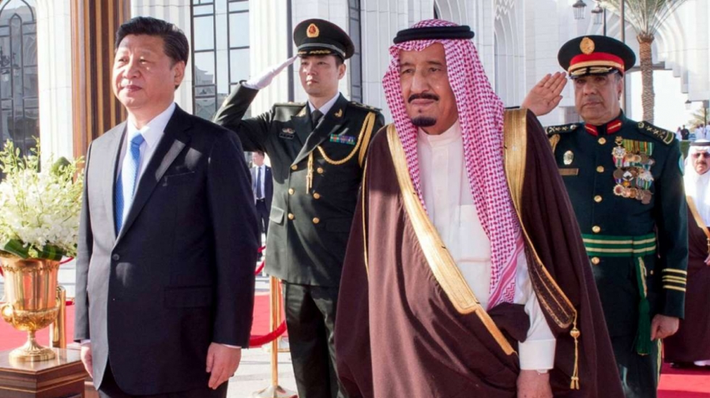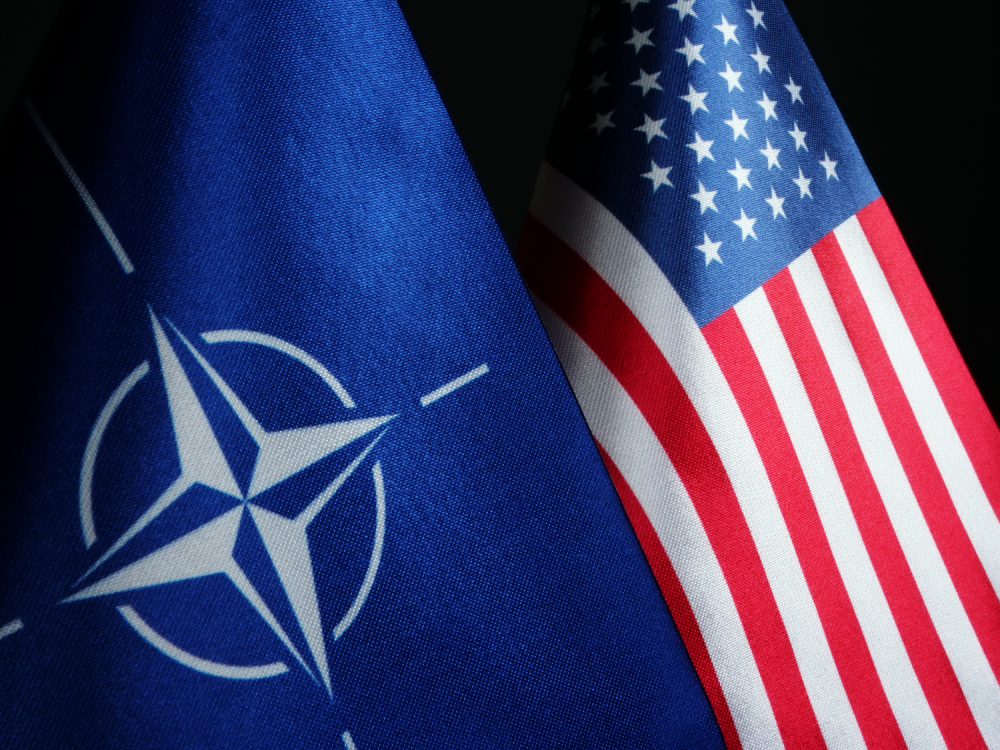
HONG KONG, SAR: Although many Muslim nations are publicly unhappy with US support for Israel in the wake of Israel’s invasion of Gaza in retaliation for Hamas’s savage October 7 surprise attack and make a show of preferring China’s growing influence, their shift in allegiance is only temporary, analysts say, although the Gaza situation has complicated the US position and slowed the momentum that was building for growing rapport between Israel and several Middle Eastern nations, particularly Saudi Arabia.
“The Gaza war has presented a difficult challenge to the US relationships in the Middle East. However, China will be unable to significantly replace the US,” a former international banker based in Hong Kong told Asia Sentinel. China, he said, is unable to project military power in the region and, despite being a large buyer of oil, has limited influence in a Middle East war.
“Most Islamic countries find it difficult to openly ally with the US at this heat of the moment, but history tells us that they would invariably come around to maintain cordial relations with the US after the dust is settled,” Oh Ei Sun, a senior fellow of the Singapore Institute of International Affairs, told Asia Sentinel. “That had always been the case after the various wars involving Israel and its Arab neighbors, during which the US invariably took the Israeli side. What they are doing now by appearing to align themselves with China is akin to what they did during the Cold War, namely aligning with the Soviet Union whenever they disapproved of the US’ stance or actions.”
Most Arab regimes secretly dislike the Muslim Brotherhood and by extension its offshoot Hamas, Oh added. “So they would not actually mind Israel’s hammering of Hamas.”
On November 20, a delegation of Arab-Islamic foreign ministers led by Saudi Foreign Minister Prince Faisal bin Farhan visited Beijing. The delegation also included Foreign Ministers of Jordan, Egypt, Palestine, and Indonesia and Secretary General of the Organization of Islamic Cooperation. At this meeting, the Chinese government outlined its proposal on the crisis, said Mao Ning, a Chinese foreign ministry spokeswoman, at the ministry’s press conference on November 21. One of the pressing tasks is to reach an immediate ceasefire, said Mao.
A ceasefire between Israeli troops and Hamas fighters in Gaza began on November 24.
Chinese President Xi Jinping addressed the Gaza conflict at a BRICS meeting in Beijing on November 21, saying “I have emphasized on many occasions that the only viable way to break the cycle of Palestinian-Israeli conflict lies in the two-state solution…. China calls for early convening of an international peace conference that is more authoritative to … work toward an early solution to the question of Palestine.”
China’s strategy
“By stressing its neutral stance and its role as a voice of the Global South, China wants to check the US’s moral standing and legitimize internationalization of the issue, calling for a global conference to initiate a peace process – thereby removing Washington from its decades-long position as the unchallenged arbiter in the conflict,” said Ahmed Aboudouh, an associate fellow of Chatham House in an article of the British institute on October 25.
Xi’s special representative Ding Xuexiang will be in the United Arab Emirates (UAE) for the World Climate Action Summit from November 30 to December 2, China’s foreign ministry announced on November 24. Vice Premier Ding will visit Kazakhstan and Turkmenistan and hold meetings on cooperation with these two Central Asian states from November 26 to 30, the ministry added.
While China is courting these Muslim countries, Biden was snubbed in Jordan in October by Jordan’s King Abdullah although he recently held talks with Egyptian President Abdel Fattah El-Sisi and Palestinian Authority President Mahmoud Abbas.
The Gaza conflict has been a disaster for the US, as many people around the world are unhappy with the US over its stance on this issue, said former Singapore Foreign Minister George Yeo during a talk at Hong Kong University on November 22. China’s agreement with the Muslim nations’ stance on Gaza does not mean China is against Israel, Yeo said. He cited a recent UN session in which an Israeli official criticized China for not supporting Israel more over the Gaza conflict. A Chinese official looked at the Israeli official in the eye and told him, “We are not your opponent,” Yeo recounted.
“China also uses ‘anti-Western neutrality’ to appeal to a densely populated and strategically important support base. Many Global South nations are sympathetic to Palestine, and the war is therefore an issue China can use to mobilize support for its leadership of developing countries,” said Aboudouh in the Chatham House article. “The war encouraged Saudi Crown Prince Mohamed bin Salman and Iran’s President Ibrahim Raisi to speak on the phone for the first time, something China was pleased to see.”
The ultimate objective is “to degrade the US’s global standing and win the ‘discourse power’ war by capitalizing on sympathy for Palestinians worldwide,” wrote Aboudouh.
However, “I do not believe that this has resulted in a universal turning of the Muslim world against the USA towards China,” Andre Wheeler, chief executive officer of Asia Pacific Connnex, an Australian consultancy, told Asia Sentinel. “China has its own internal problems with the Muslim community, and whilst there may be a marriage of convenience presently, I don’t think this will last.”
Gaza will be seen as a single-issue agreement between China and Muslim nations, Wheeler added. Indonesia, for example, will continue to pursue its territorial conflict with China.
“For China, the Israel-Hamas war, coupled with the ongoing Ukraine crisis, has interfered with the American attempt to focus on the Indo-Pacific region and is providing China with much greater room for maneuver,” said Emil Avdaliani, a professor of international relations at the European University in Tbilisi, Georgia in an article of the Stimson Center, a US think tank, on November 9. “Longer-term, the two wars could offer China significant breathing space comparable to US distraction during the early 2000s when Washington was embroiled in the so-called war on terrorism. This might buy China enough time to prepare for deeper competition with the US and possibly confrontation over Taiwan.”
The war in Gaza is also a positive development for China and to a certain extent Russia “because it looks likely to freeze attempts to create a new trade corridor from India to Europe via the Middle East,” Avdaliani added.
On September 9, Biden, along with leaders of India, Saudi Arabia, and the UAE announced the launch of a trade route connecting India to the Middle East and Europe through railways and ports. This was perceived by some as Washington’s attempt to compete with China’s Belt and Road Initiative with a US version. For the moment, perhaps, it is inconvenient for some nations to join Biden’s infrastructure plan, but the ultimate decision hinges mainly on the funding for such an ambitious project, Oh said.
“I don’t think the Gaza War will stop this plan as China is still being viewed with suspicion by many in the Middle East,” Wheeler said.
The former banker said, “The Biden Administration has pledged absolute support for Israel. The leaders of Muslim nations must counterbalance their own support for Palestinians against broader geopolitical interests. The wealthiest ones like Duba, Saudi Arabia want peace and economic development, not a costly jihad.”








0 Comments
LEAVE A REPLY
Your email address will not be published